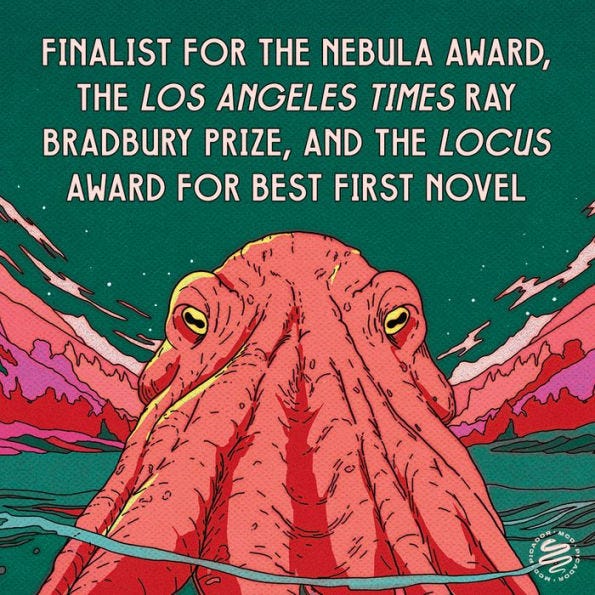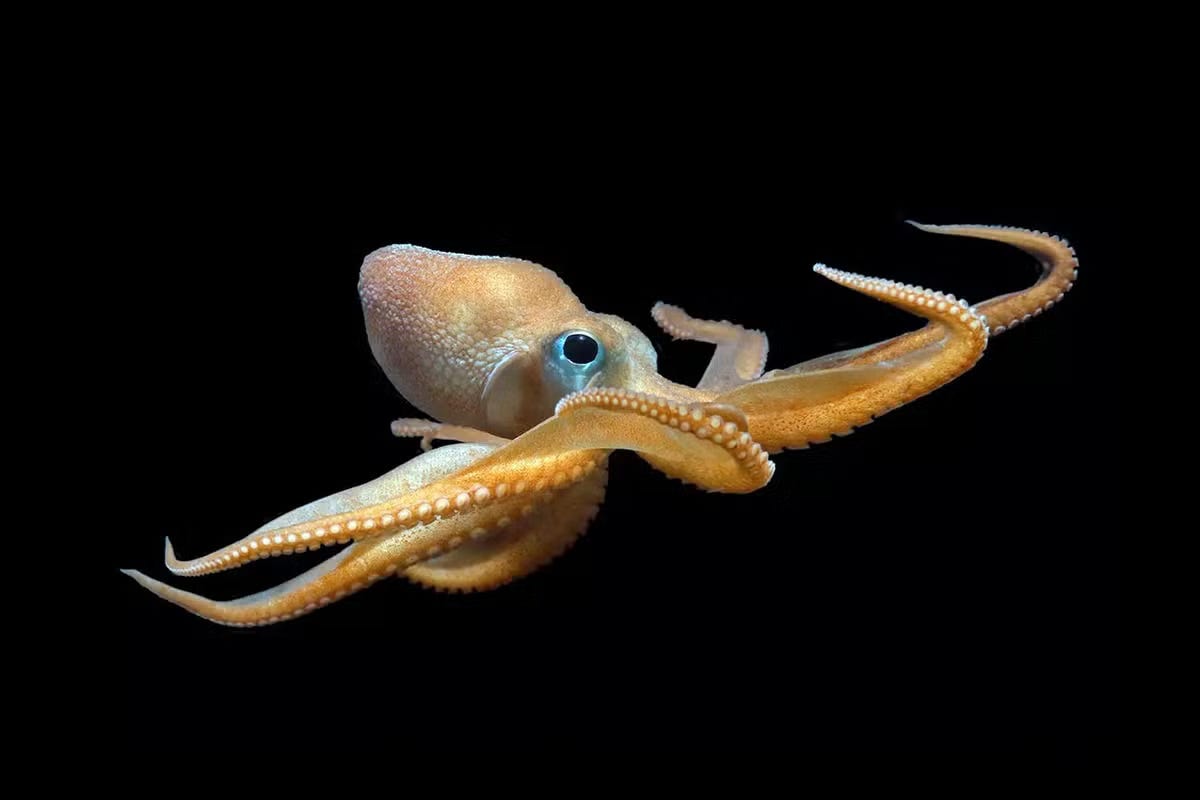Summer Reading: Nayler’s Engrossing but Intensely Disturbing The Mountain in the Sea
The Massachusetts Medievalist loves a book recommendation from a former student (thanks @C_GraceT!), and Ray Nayler’s The Mountain in the Sea (2022) checks all the boxes: intricately interesting structure, rumination-inducing philosophical problems, and frightening dystopian elements.
Much of the short-form publicity and reviews refer to the “dangerous species of hyperintelligent octopus that may have developed its own language and culture” (book jacket). Lots of the online commentary complains that the novel neglects the octopus focus in favor of the three ultimately entwined plotlines, but I think the problem lies with the marketing-speak and not with the novel. There are octopuses, yes, but if you come for the octopus, then stay for the dystopian horror, created and staffed by humans rather than cephalopods.
There’s a lot to choose from, in the dystopian horror category, including a fish-harvesting and -processing ship worked by abducted and enslaved men and controlled by AI systems programmed to maximize profit at the expense of human lives and natural resources management. The subtler horrors are perhaps more generally, painfully recognizable – Nayler has exploited the dystopian tradition of presenting a world uncomfortably close to our own historical moment.
The world of Mountain in the Sea is organized by economic interest clusters rather than by nation, and corporations have “security” departments that function as privately controlled, global military systems. All of the characters we meet are isolated from community, family, friends, networks; readers discover that isolation is more of a feature than a bug in this new world order.
One night, as Rustem and Aynur are talking after sex, Aynur says, “I was lying here thinking I haven’t talked this much to a person in a long time. Usually if I have a long talk like this, it’s with my point-five” (145). Along with the reader, Rustem doesn’t know what a “point-five” is, so Aynur explains:
“..people don’t really want to date other people. They don’t really want equal partnership – you know, two full people in a relationship. Two people with demands and desires and differences of opinion about everything. What they want is one-point-five people in the relationship. They want to be the complete one, the person who controls the relationship – and they want the other person to be half a person. You know, someone who gets them but doesn’t have their own demands…..So six or seven years ago, this big company in the SF-SD axis that specializes in AI started cranking these things out” (145-6).
In this world, humans try to meet their emotional and social needs through these AI “partners” known as point-fives. Nayler plays a wonderful narrative trick on us when we realize that a character we met before Aynur’s explanation is actually a point-five, not a human.
Right after I finished Mountain, I found Lila Shroff’s article about AI systems marketed to children in this month’s Atlantic, which references “chatbots that promise simulated social relationships” via “extremely personalized AI systems.” Mountain was published three years ago, but Nayler saw clearly where we are headed, complete with the perils of replacing actual humans with machines that superficially simulate but do not provide human connection. We are well on our way to normalizing human-machine “relationships,” prioritized over actual human relationships, and that idea is more frightening than any smart octopus I can imagine.
Speaking of humans, Nayler flings us back to the question Mary Shelley posed in her 1818 Frankenstein: is the Creature human? No spoilers, but any reader will be thinking about Evrim’s humanity and place in the world after finishing this novel. Like Brave New World, 1984, Oryx and Crake, or Our Missing Hearts, The Mountain in the Sea forces us to reckon with our own culture’s reckless choices and acknowledge the possibility, or even likelihood, that the dehumanized, digital world Nayler depicts could be lurking in our near future. Please post a comment about what kept you awake in the middle of night after finishing this novel!



